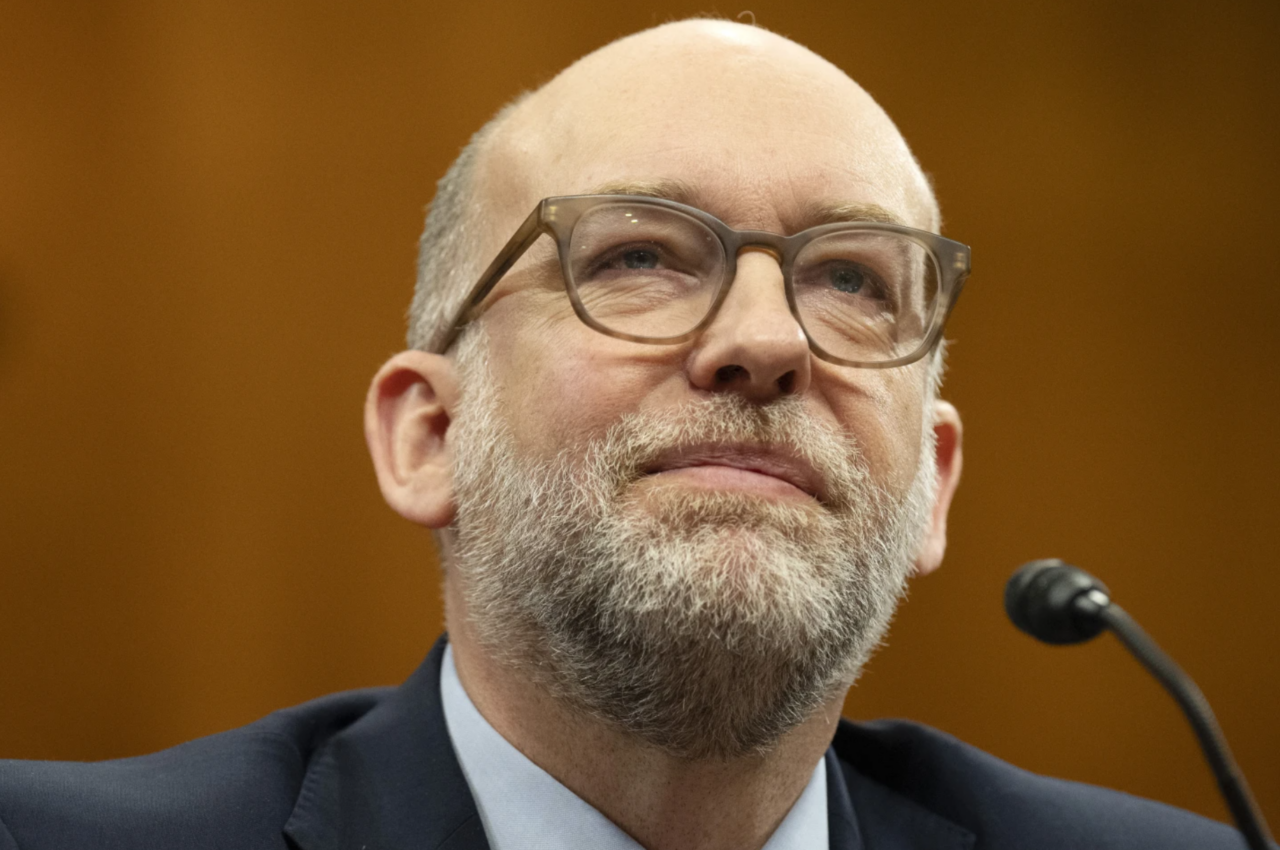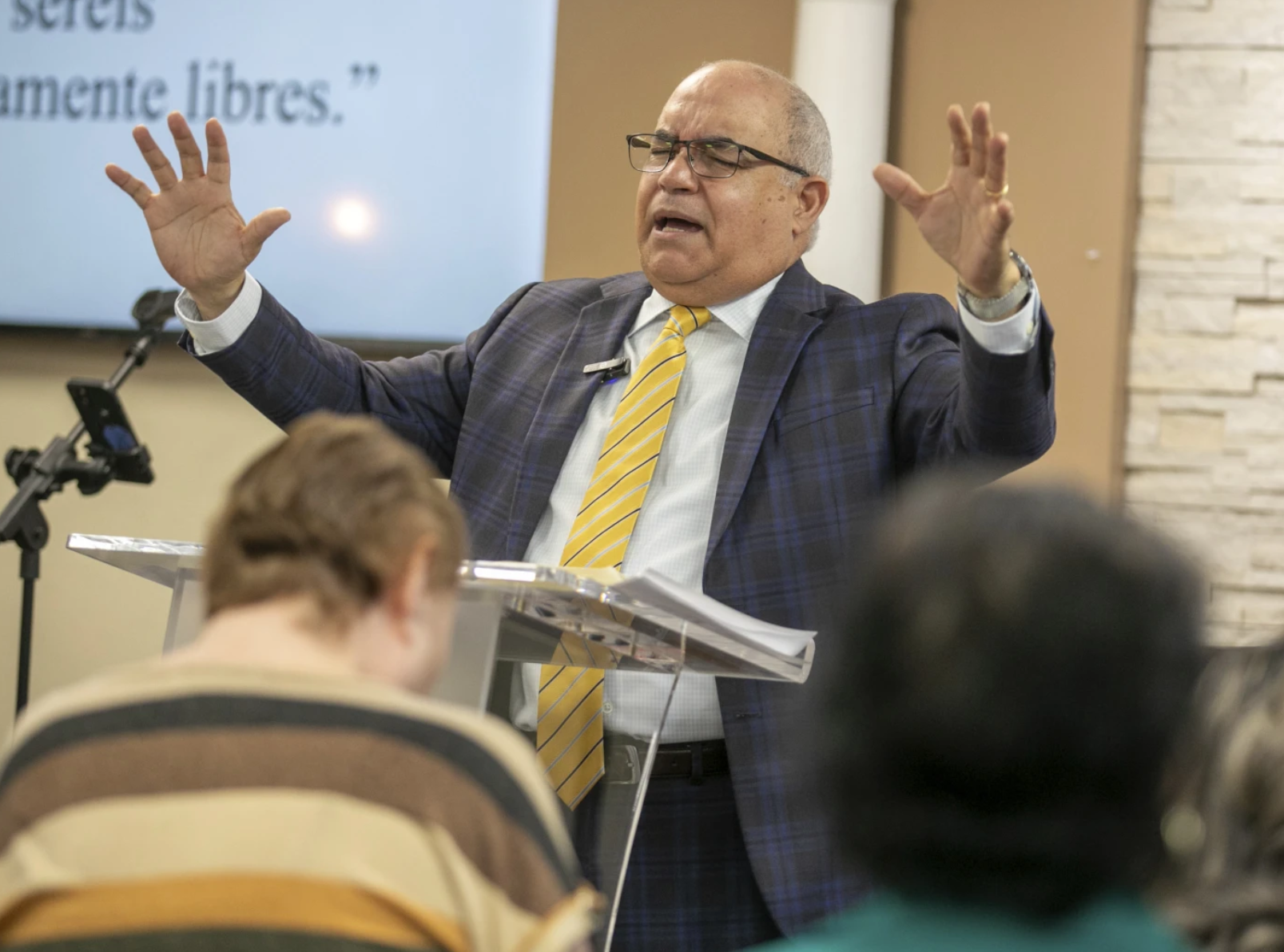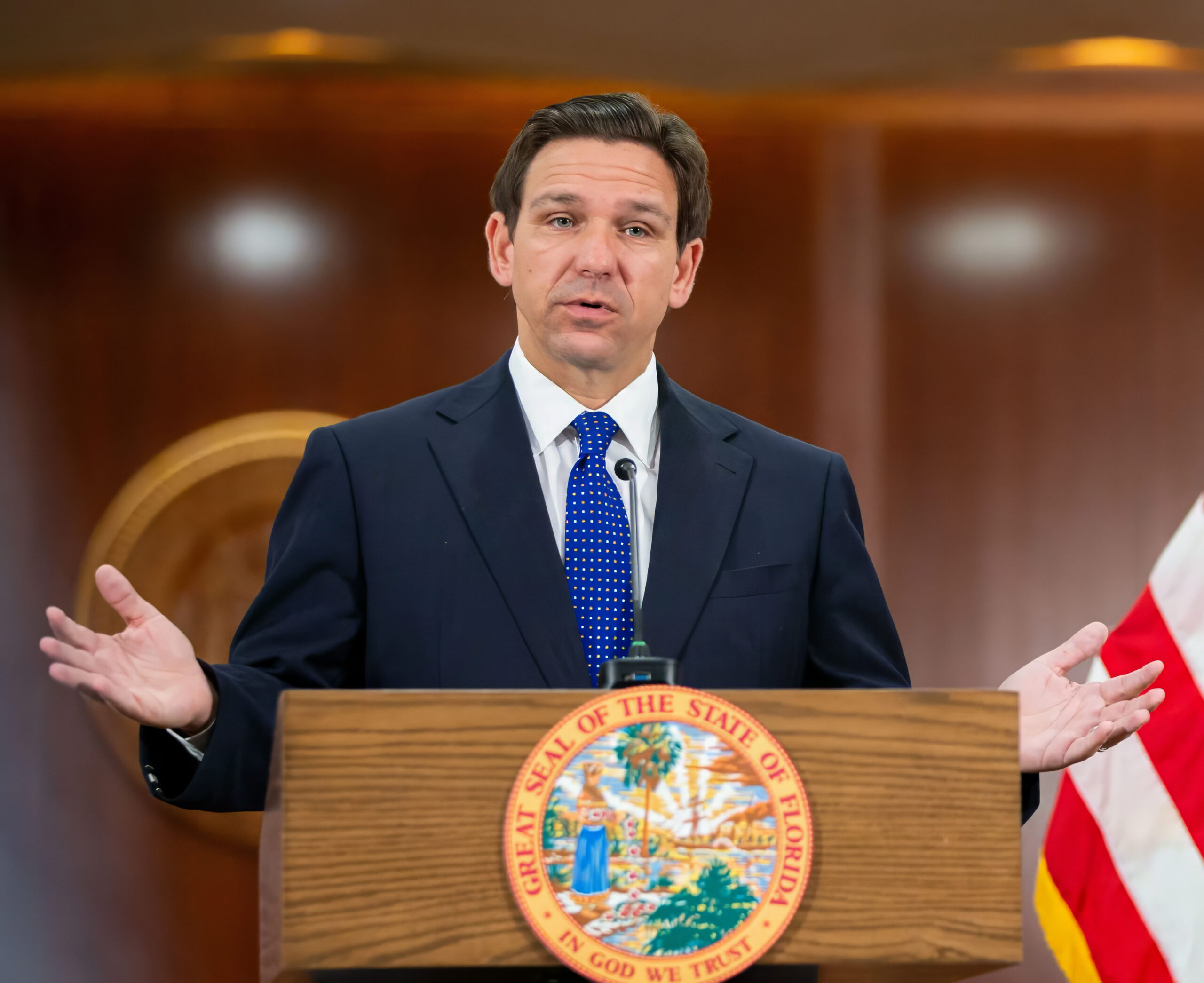Bishop Ebli De La Rosa says his motto right now is “to prepare for the worst and pray for the best.”
De La Rosa, who oversees Church of God of Prophecy congregations in nine southeastern states, says he has had to respond quickly to the Trump administration’s new orders, which have thrown out policies that restricted immigration enforcement in sensitive locations such as schools and houses of worship.
This move has imperiled 32 of the Latino evangelical denomination’s 70 pastors who are here without legal status and serve in some of the region’s most vulnerable communities, De La Rosa said. The bishop has instructed each congregation with endangered pastors to prepare three laypeople to take over, should their leader be deported. He has also told them to livestream every service, and to “keep recording even if something happens.”
“Some of my pastors are holding services with doors locked because they are scared that immigration agents will burst through the door at any moment,” he said. “I feel so bad and so helpless that I can do nothing more for them.”
De La Rosa echoes the sentiments of several other faith leaders representing thousands of Latino evangelical Christians in Florida and swaths of the Southeast. They worry about the sanctity of their sacred spaces, and the possibility of immigration raids and arrests.
A statement from the Department of Homeland Security on Jan. 20 said the President’s executive order will empower officers with Immigration and Customs Enforcement and Customs and Border Protection to enforce immigration laws and that “criminals will no longer be able to hide in America’s schools and churches to avoid arrest.”
Agustin Quiles, a spokesperson for the Florida Fellowship of Hispanic Councils and Evangelical Institutions, said community members, including many who supported Donald Trump in the last election cycle, now feel devastated and abandoned.
“The messaging appears to be that anyone who is undocumented is a criminal,” he said. “Latino evangelicals for the most part voted Republican and hold conservative views on issues like abortion. We want to ask the President to reconsider because these actions are causing pain and trauma to so many families in and beyond our churches. Their suffering is great, and the church is suffering with them.”
Quiles said his organization will lobby legislators in Washington and Florida to reinstate laws that protected sensitive spaces like houses of worship.
“Our main focus is the unity of families and the many children who will be impacted or left behind without their parents,” he said.
Pastor Samuel Rodriguez, President of the National Hispanic Christian Leadership Conference, who advised President Trump on immigration during his first term, says he has been assured on multiple occasions “by those in the know” that houses of worship have nothing to fear.
“There should be zero angst as it pertains to churches because no one is going to come into a church with or without guns blazing,” he said. “That is never going to happen.”
However, Rodriguez said agents may surveil a church if they suspect someone engaged in criminal activity is seeking shelter there. And he said those who are here illegally — even if they have lived in the United States for decades — may be deported if they are living with or are around someone who is here illegally and has committed a crime.
The National Association of Evangelicals, which says it represents 40 congregations and serves millions, expressed dismay at the executive order.
“Withdrawal of guidance protecting houses of worship, schools and health facilities from immigration enforcement is troubling,” it said on Jan. 22, asserting that the move has deterred some from attending church.
Pastors who are seeing the impact of these orders on the ground agree.
The Rev. Esteban Rodriguez, who leads Centro Cristiano El Pan de Vida, a mid-size Church of God of Prophecy congregation in Kissimmee, Florida, said Latino evangelical churches “are like a big family that is composed of families.” In his community, those who are here without legal status have even been afraid to go to work, church and to food pantries to fulfill their basic needs, he said.
Rodriguez said he has been helping some congregants with reference letters for their immigration applications and speaking with lawyers to see how the church can help proactively.
The Rev. Ruben Ortiz, Latino field coordinator for Cooperative Baptist Fellowship, says Latino churches have spent decades creating these sacred spaces at great cost, without relying on government assistance. Ortiz said he was distressed to hear about an incident outside an Atlanta-area church where an individual was arrested while a service was being held inside.
The Bible clearly states that a church is a place of refuge and these laws challenge that sacred belief, Ortiz said.
“We are getting calls from members who say they don’t feel safe in our churches,” he said. ”We are going to respond by giving shelter. We are going to embrace all regardless of their immigration status. Everyone can and should find refuge in our churches.”
Thomas A. Saenz, President and general counsel for the Mexican American Legal Defense and Educational Fund, said he does not expect immigration authorities to engage in raids on churches that violate people’s constitutional right to gather and worship.
“What they may do and have done is target a specific individual who might be attending church,” he said. “I would expect more of that.”
The law is murky as to whether churches can legally shelter those who are here illegally as part of their faith, but there are strong arguments to be made, Saenz said.
“People should know they have rights that protect them, and that they have allies inside and outside the church who will express their outrage if their constitutional rights are violated,” he said.
Latino evangelicals are in a unique spot because they are influenced by the theology of right-leaning white evangelical churches, whose pastors and leaders are also the strongest voices against immigration, said Lloyd Barba, assistant professor of religion at Amherst College in Massachusetts who studies Latino immigration and religion.
Barba said the Latino evangelical community includes many independent churches and diverse organizations that lack a unified, central teaching on immigration — unlike mainline denominations such as the United Methodist Church or the Evangelical Lutheran Church in America.
“Even the Catholic Church has a robust doctrine and social teaching on immigration,” he said. “Without that, we tend to encounter a little more reluctance or uncertainty about whether Latino pastors should be engaging in this kind of sacred resistance.”
Bishop Abner Adorno with Assemblies of God in the Florida Multicultural District, said he leans into the Bible where he says the teaching on immigration is crystal clear. He points to Deuteronomy 10:19, which says: “So you, too, must show love to foreigners for you yourselves were once foreigners in the land of Egypt.”
“This verse describes a Judeo-Christian foundation of concern for immigrants and refugees,” he said. “While the concern of the government must be on enforcement, the role of the church must be compassion.”
___
Republished with permission of The Associated Press.
Post Views: 0

 Entertainment8 years ago
Entertainment8 years ago
 Entertainment8 years ago
Entertainment8 years ago
 Politics8 years ago
Politics8 years ago
 Tech8 years ago
Tech8 years ago
 Tech8 years ago
Tech8 years ago
 Tech8 years ago
Tech8 years ago
 Politics8 years ago
Politics8 years ago
 Tech8 years ago
Tech8 years ago










